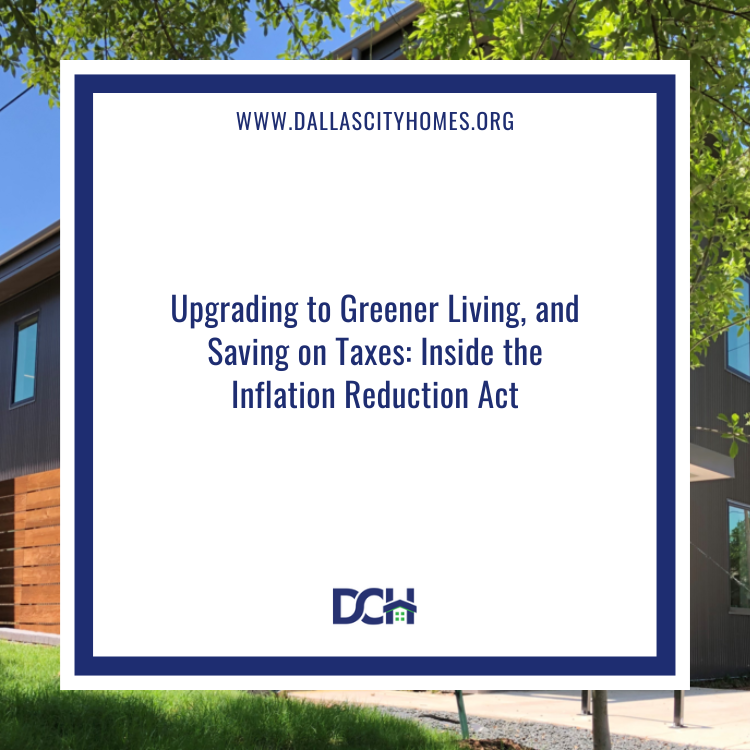Upgrading to Greener Living, and Saving on Taxes: Inside the Inflation Reduction Act
In response to increasing issues arising from affordability due to inflation, the government responded by introducing the Inflation Reduction Act. The name Inflation Reduction Act does little to explain its’ potential implications to home buyers and owners. This act is meant to incentivize greener living while promoting affordability through offering tax-saving opportunities for those looking to make green upgrades. These incentives and credits will be available for at least several years, so if you are considering buying or updating you have time to get this on your roadmap.
What qualifies?
You can potentially reduce your tax bill by energy-efficient home improvements including installing new energy-efficient windows, doors, water heaters, furnaces, and air conditioners. It also improves existing tax credits for "green" upgrades.
Greener Living Incentives and Tax Reduction Strategies:
1. Renewable Energy Tax Credits:
For those adopting renewable energy sources, whether you're installing solar panels on your property or investing in wind energy systems, the government is issuing significant tax credits. The credit reaches up to 30%, and the scope of the credit is broader under the new legislation, excluding biomass furnaces and water heaters but including battery storage technology from 2023. Alternative Fuel Refueling Property Credit, extending it through 2032, where homeowners benefit from a 30% credit on the costs of "qualified alternative fuel vehicle refueling property" installed at home, up to $1,000.
2. Energy-Efficient Home Upgrades:
Under prior legislation a $500 lifetime credit was available for making green home improvements, under the new legislation, 30% credit for all eligible home improvements made during the year, and an annual limit increased to $1,200 is available for upgrades. Improvements like biomass stoves and boilers, electric panels, and home energy audits.
3. Green Investment Credits:
The Inflation Reduction Act introduces green investment credits, providing tax relief for individuals who invest in environmentally conscious businesses. Whether it's supporting clean energy startups or contributing to sustainable agriculture initiatives, these credits incentivize individuals to align their investments with eco-friendly practices.
4. Carbon Footprint Offset Credits:
Individuals can purchase carbon footprint credits to compensate for their carbon emissions, directly contributing to projects that aim to offset environmental damage. The purchase of these credits also provides a tax deduction.
DCH strives in all areas of their development to be more sustainable. From following adaptive reuse principles to building sustainably and with energy efficiency in mind, we are committed to reducing our carbon footprint and make housing that is affordable as well as sustainable. These incentives are another way that people can do more to go green, and save. To learn more click here to read the official White House statement.

